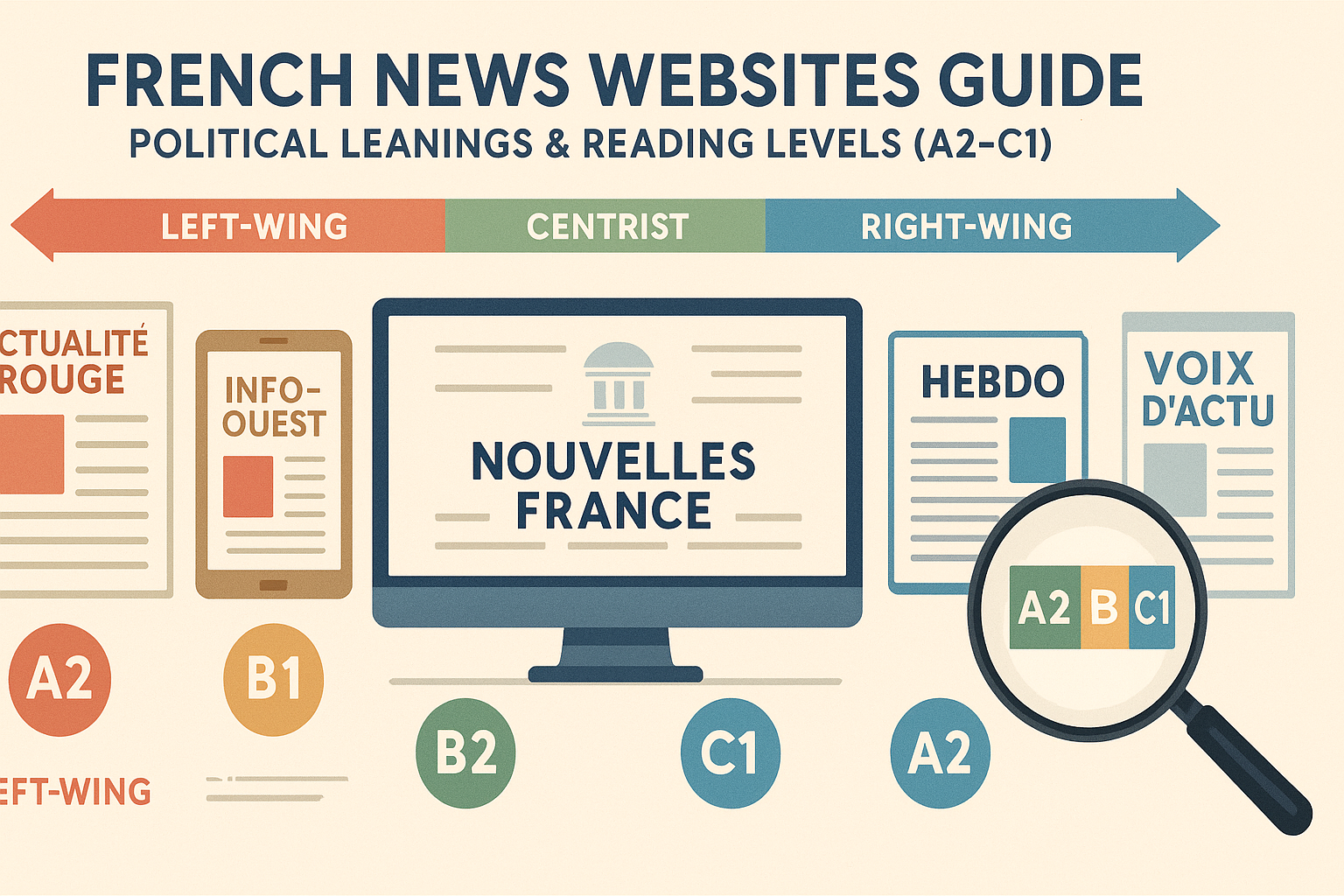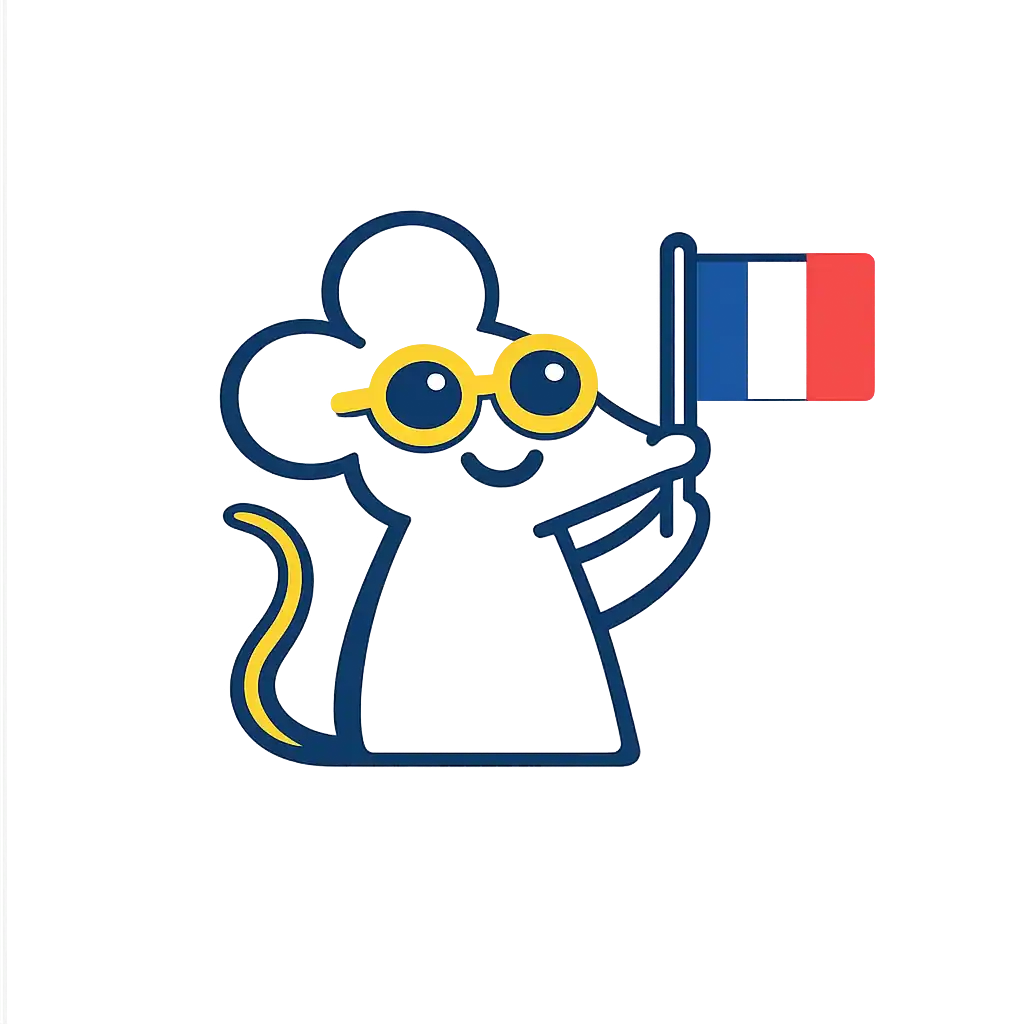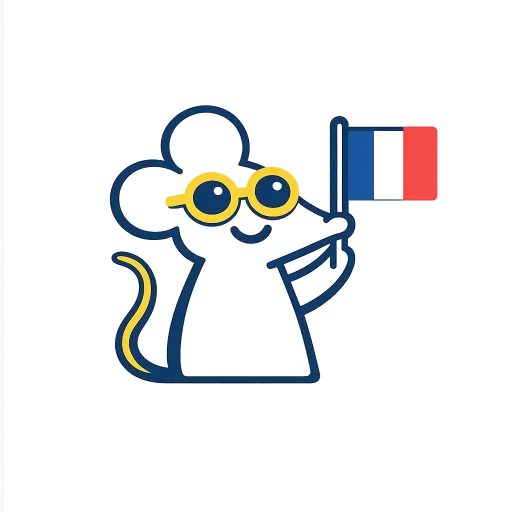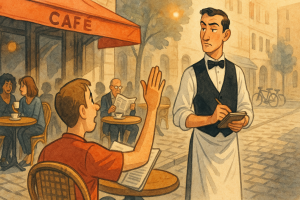French news websites guide — political leanings and reading levels explained (A2–C1)
Understanding the French media landscape requires navigating complex political orientations, editorial approaches, and linguistic difficulty levels that differ significantly from Anglo-American news ecosystems. This comprehensive guide maps major French news websites by political leaning, explains their editorial philosophies, assesses reading difficulty for language learners, and provides strategies for using French news to accelerate comprehension and cultural literacy.

Why reading French news accelerates language learning
French news sources provide daily exposure to current, relevant vocabulary that textbooks cannot match. Political, economic, social, and cultural topics introduce specialized terminology while maintaining accessibility through journalistic clarity. News articles follow predictable structures that build reading comprehension systematically. Regular news consumption creates implicit grammar learning as you absorb standard written French patterns through repetition across diverse topics.
Understanding French news also develops cultural literacy essential for genuine fluency. French political discourse, social debates, and cultural references pervade everyday conversation. Without basic awareness of current French issues—electoral systems, social movements, cultural controversies—you miss contextual clues that native speakers take for granted. News reading bridges this cultural knowledge gap while simultaneously building language proficiency.
The diversity of French news sources allows strategic selection matching your current level and interests. Beginners can access simplified news designed for language learners. Intermediates can choose mainstream sources with moderate complexity. Advanced learners can tackle opinion pieces, investigative journalism, and specialized publications requiring sophisticated comprehension. This scalability makes news reading sustainable across your entire learning journey.
Understanding the French media landscape
French media operates under different assumptions than Anglo-American journalism. The Anglo-American ideal of strict objectivity—presenting “both sides” without explicit editorial stance—exists less prominently in French journalism. French newspapers traditionally embrace clear political orientations, with readers selecting sources aligning with their perspectives rather than expecting single “neutral” source. This pluralism assumes informed citizens consume multiple sources representing diverse viewpoints rather than trusting one outlet as definitively objective.
French journalism also maintains stronger separation between news reporting and opinion than American media, where these boundaries increasingly blur. French newspapers clearly demarcate reportage (factual news), analysis (contextual interpretation), and opinion (editorial positions). Understanding these distinctions prevents mistaking opinion pieces for neutral reporting while teaching valuable media literacy applicable across languages.
Print media retains more prestige and influence in France than in the United States, where television news dominates. Major French newspapers like Le Monde and Le Figaro function as agenda-setters influencing political discourse significantly. French intellectuals regularly publish in newspapers, maintaining closer connections between academic thought and public debate than typical in Anglo-American contexts. This print-centricity means online versions of established newspapers provide authoritative, high-quality French reading material.
Center-left and progressive news sources
Le Monde
Website: lemonde.fr
Political orientation: Center-left, progressive on social issues, economically moderate
Editorial approach: French newspaper of record, comprehensive international coverage, in-depth analysis, investigative journalism, intellectual tone
Reading level: B2-C1 (Advanced intermediate to advanced)
Access: Partial paywall—limited free articles monthly, subscription €12.99/month
Best for learners: Advanced students seeking authoritative French on politics, culture, and international affairs. Dense but well-written prose builds sophisticated vocabulary.
Notable sections: “Les Décodeurs” (fact-checking), “Idées” (opinion), international coverage
Libération
Website: liberation.fr
Political orientation: Left-wing, progressive, socially liberal
Editorial approach: Founded by Jean-Paul Sartre, maintains intellectual left perspective, strong cultural coverage, investigative reporting, younger readership than Le Monde
Reading level: B1-B2 (Intermediate to upper intermediate)
Access: Partial paywall, some free content
Best for learners: Intermediate students interested in progressive perspectives, cultural topics, and accessible prose without Le Monde’s density
Notable features: Strong photography, cultural criticism, social movement coverage
Mediapart
Website: mediapart.fr
Political orientation: Left-wing, investigative focus, editorially independent
Editorial approach: Online-only, subscription-based investigative journalism, broke major French political scandals, independent editorial line, activist journalism tradition
Reading level: B2-C1 (Upper intermediate to advanced)
Access: Full paywall—€11/month, no free articles
Best for learners: Advanced students interested in investigative journalism, political scandals, in-depth reporting. Complex analysis requires strong comprehension.
L’Obs (Le Nouvel Observateur)
Website: nouvelobs.com
Political orientation: Center-left, social-democratic
Editorial approach: Weekly news magazine format, political analysis, cultural coverage, less daily news than investigative features
Reading level: B2 (Upper intermediate)
Access: Partial paywall
Best for learners: Students wanting weekly digest format over daily news, interest in longer-form analysis and cultural topics
Center-right and conservative news sources
Le Figaro
Website: lefigaro.fr
Political orientation: Center-right, conservative, traditional values
Editorial approach: Oldest French national newspaper (founded 1826), business-friendly, law-and-order focus, traditional Catholic-influenced conservatism, strong literary and cultural sections
Reading level: B2-C1 (Upper intermediate to advanced)
Access: Partial paywall—limited free articles, subscription €9.99/month
Best for learners: Advanced students seeking conservative perspectives on French politics, excellent cultural coverage, traditional journalistic style. Provides essential counterpoint to left-leaning sources.
Notable sections: “Le Figaro Littéraire” (literature), economics, opinion pages
Les Échos
Website: lesechos.fr
Political orientation: Center-right, business-oriented, economically liberal
Editorial approach: Leading French business newspaper, economic focus, corporate news, financial markets, technology
Reading level: B2-C1 (Upper intermediate to advanced)
Access: Partial paywall
Best for learners: Students interested in business French vocabulary, economics, finance, corporate culture. Specialized but accessible business journalism.
Valeurs Actuelles
Website: valeursactuelles.com
Political orientation: Right-wing, conservative, nationalist
Editorial approach: Weekly magazine, conservative social positions, immigration restrictionist, traditional values emphasis
Reading level: B1-B2 (Intermediate to upper intermediate)
Access: Partial paywall
Best for learners: Understanding right-wing French discourse, nationalist perspectives. Included for completeness—represents significant French political current.
Centrist and neutral news sources
AFP (Agence France-Presse)
Website: afp.com/fr
Political orientation: Neutral—wire service providing factual reporting to media worldwide
Editorial approach: International news agency, factual reporting without editorial opinion, multiple daily updates, concise articles
Reading level: B1-B2 (Intermediate to upper intermediate)
Access: Free via AFP website and mobile apps
Best for learners: Students wanting neutral factual reporting, international news, clear concise French without editorial complexity. Excellent for building news vocabulary systematically.
France 24
Website: france24.com/fr
Political orientation: Centrist, state-funded international broadcaster
Editorial approach: International news focus, French perspective for global audience, available in French and English allowing comparison
Reading level: B1 (Intermediate)
Access: Completely free
Best for learners: Intermediate students, parallel French/English versions enable checking comprehension, international focus provides diverse vocabulary, video content with transcripts aids listening practice
Le Point
Website: lepoint.fr
Political orientation: Centrist with center-right tendency, politically moderate
Editorial approach: Weekly news magazine, political analysis, business coverage, attempts balanced perspective across political spectrum
Reading level: B2 (Upper intermediate)
Access: Partial paywall
Best for learners: Students wanting political coverage without strong ideological slant, weekly format manageable for learners
News sources by reading level for learners
Beginner level (A2-B1)
Le Journal en Français Facile (RFI)
Website: savoirs.rfi.fr (Journal en Français Facile)
Perfect for: A2-B1 beginners
Format: Ten-minute daily audio news with transcript, simplified vocabulary, slow clear pronunciation
Access: Completely free
Why it works: Specifically designed for French learners, vocabulary explanations included, manageable daily dose, combines listening and reading practice
1jour1actu
Website: 1jour1actu.com
Perfect for: A2-B1 learners (designed for French children but excellent for adult beginners)
Format: News explained for young audiences, simple vocabulary, clear explanations, visual aids
Access: Free with some premium content
Why it works: Explains complex topics simply, avoids jargon, builds foundational news vocabulary, less intimidating than adult news
Intermediate level (B1-B2)
💡 Intermediate strategy: Start with France 24 or AFP for straightforward reporting, then progress to 20 Minutes or Libération. Use browser extensions like Google Dictionary for quick lookups without disrupting reading flow.
Recommended sources: France 24, AFP, 20 Minutes (free daily newspaper with accessible French), franceinfo (French public radio news website)
Approach: Read headlines and lead paragraphs first building overview before tackling full articles. Focus on understanding main ideas rather than every word. Note unfamiliar news vocabulary for review.
Advanced level (B2-C1)
Recommended sources: Le Monde, Le Figaro, Mediapart, L’Obs, Les Échos
Approach: Read opinion pieces and analysis alongside news reports. Compare coverage of same events across different political orientations. Engage with complex sentence structures and sophisticated vocabulary. Focus on understanding subtle connotations and implied meanings.
Strategic reading techniques for news comprehension
The headline scanning method
Spend ten minutes daily scanning headlines across multiple French news sites. This rapid exposure builds recognition of recurring vocabulary, current events awareness, and familiarity with headline grammar conventions. Headlines use compressed syntax that initially confuses learners but becomes comprehensible through repeated exposure. This low-pressure daily habit maintains French contact without demanding intensive reading time.
The comparative reading approach
Select one major story and read coverage from three sources with different political orientations—for example, Le Monde (center-left), Le Figaro (center-right), and AFP (neutral). This comparison reveals how editorial stance affects framing, vocabulary choice, and emphasis while reinforcing vocabulary through repetition. Comparing perspectives deepens understanding while preventing echo chamber reading.
The vocabulary extraction system
Maintain a news vocabulary notebook organized by topic: politics, economics, society, culture, international relations. As you encounter unfamiliar terms, record them with context sentences, translations, and article dates. Review weekly, noting which terms recur frequently. This systematic approach builds specialized vocabulary domains essential for understanding sophisticated French discourse.
Example vocabulary entry:
🇫🇷 FR — Le scrutin /lə skʁytɛ̃/
Context: “Le scrutin présidentiel aura lieu en avril.” (Le Monde, 15/11/2025)
🇺🇸 EN — The ballot / election / poll
Topic: Politics/Elections
The audio-text pairing method
Many French news websites offer video or audio versions of articles. Watch or listen first attempting comprehension, then read the written version checking understanding. This dual-mode exposure strengthens listening comprehension while providing text support. France 24, franceinfo, and Le Monde all offer extensive multimedia content perfect for this approach.
Navigating paywalls and accessing free content
Major French newspapers employ paywalls limiting free articles monthly. Le Monde allows approximately five free articles before requiring subscription. Le Figaro similarly restricts access. These paywalls fund quality journalism but create barriers for learners on budgets. Several strategies enable continued access without subscriptions:
Free alternatives provide quality content
AFP, France 24, franceinfo, and RFI provide completely free access to substantial French news content. Public broadcasting funding and wire service models enable free distribution. These sources offer professional journalism without paywalls, making them ideal primary sources for learners.
Library access often includes newspapers
Many US public libraries provide free digital access to international newspapers including French titles through services like PressReader or Flipster. Check your library’s digital resources—you may already have free access to Le Monde, Le Figaro, and other paywalled sources through existing library membership.
Social media provides article samples
Following French newspapers on Twitter/X often provides free access to selected articles shared on social platforms. While not comprehensive, this curated selection introduces you to major stories while bypassing paywalls for highlighted content.
⚠️ Ethical consideration: If you regularly read and benefit from specific French news sources, consider supporting quality journalism through subscription when financially feasible. Professional journalism requires funding, and subscriptions enable continued production of content valuable for learning and democratic discourse.
Fact-checking and media literacy resources
Developing critical reading skills requires distinguishing factual reporting from opinion, recognizing bias, and verifying claims. French media offers robust fact-checking resources essential for media literacy:
Les Décodeurs (Le Monde)
Website: lemonde.fr/les-decodeurs
Le Monde’s fact-checking team investigates political claims, viral misinformation, and statistical manipulations. Excellent for learning how French journalists verify information while building political vocabulary through analyzed claims.
AFP Factuel
Website: factuel.afp.com
AFP’s fact-checking service debunks false information circulating online. Clear explanations of verification methods teach critical thinking while providing accessible French explanations of complex topics.
Conspiracy Watch
Website: conspiracywatch.info
Monitors and analyzes conspiracy theories in French media and politics. Useful for understanding French conspiracy discourse and developing skepticism toward misinformation.
Study glossary — news and media vocabulary
| FR | IPA | EN |
|---|---|---|
| Un journal | /œ̃ ʒuʁnal/ | A newspaper |
| Les actualités / Les infos | /lez‿aktɥalite / lez‿ɛ̃fo/ | The news |
| Un quotidien | /œ̃ kɔtidjɛ̃/ | A daily newspaper |
| Un hebdomadaire | /œ̃n‿ɛbdɔmadɛʁ/ | A weekly publication |
| Un article | /œ̃n‿aʁtikl/ | An article |
| Un éditorial | /œ̃n‿editɔʁjal/ | An editorial |
| Une tribune | /yn tʁibyn/ | An opinion piece / op-ed |
| Un journaliste | /œ̃ ʒuʁnalist/ | A journalist |
| La presse | /la pʁɛs/ | The press / media |
| L’orientation politique | /lɔʁjɑ̃tasjɔ̃ pɔlitik/ | Political leaning |
| De gauche / De droite | /də ɡoʃ / də dʁwat/ | Left-wing / Right-wing |
| Un fait divers | /œ̃ fɛ divɛʁ/ | News item / local news story |
| Une enquête | /yn ɑ̃kɛt/ | An investigation |
| Le scrutin | /lə skʁytɛ̃/ | The ballot / election |
| La une | /la yn/ | The front page |




